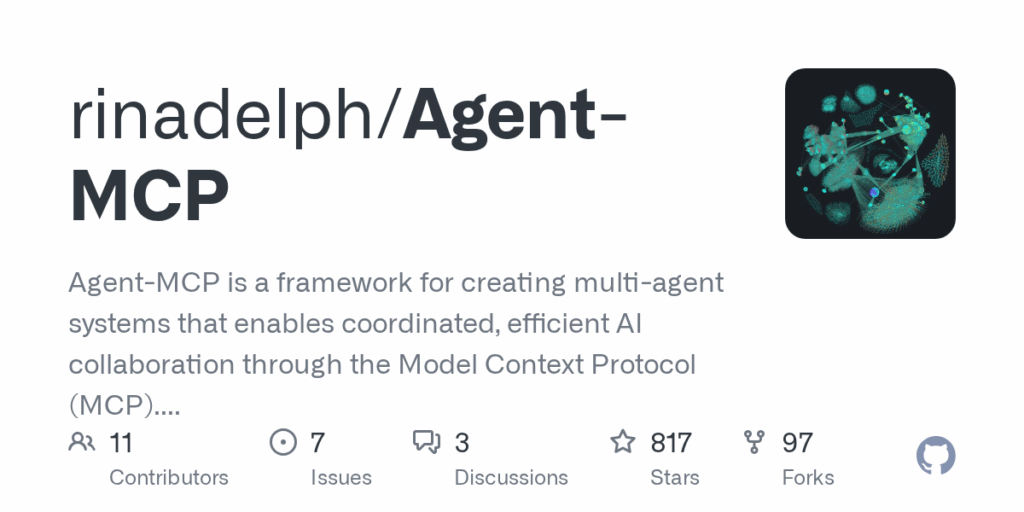Agent MCP
Basic Information
Agent-MCP is a developer-focused framework that implements a Multi-Agent Collaboration Protocol to coordinate multiple specialized AI agents for software development. It provides a persistent, searchable project knowledge graph (RAG) where agents share context, a dashboard for real-time visualization of agent activity and task progress, and an MCP server that exposes tools and resources to MCP-compatible clients. The project is intended for experienced AI developers who need to run parallel, specialized agents that operate with limited context and strict lifecycles. It includes instructions to run the server, launch a frontend dashboard, configure MCP transports, and connect clients using Python or JavaScript. System requirements and modes are documented and the repository emphasizes reproducible project blueprints called MCDs to seed the shared memory.








